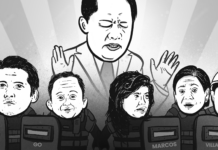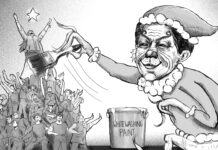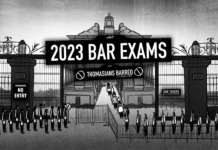THERE was a time when student council elections in UST were highly contested, overflowing with candidates and defined by an electorate demanding better student governance.
This year is something else. The lack of candidates in the executive boards of central and local student councils may be a symptom of a new kind of apathy among Thomasians.
In the fictional HBO series “Game of Thrones,” many are contending to sit on the Iron Throne and lead the Seven Kingdoms. In UST, only a few want to take the charge.
For six posts in the council, only eight candidates filed their candidacies, with no student running for vice president and only the position of secretary having more than one candidate. For each of the rest — the positions of president, treasurer, auditor and public relations officer – there is only one candidate.
This is not an issue of having quality over quantity. While such point is valid, UST’s political parties must address this issue. Lakas ng Diwang Tomasino (Lakasdiwa), for example, has failed to field a complete set of candidates for the annual student polls since 2017.
That year, it had no candidate for president but had bets for the five other positions in the council. In 2018, it did not participate in the CSC elections when no candidate from the party ran for the Executive Board. This year, only one candidate is running.
The same problem is plaguing the elections in the local student councils. In the College of Nursing, there is no candidate for president. In other colleges, faculties or institutes, only a few opted to run. This was despite the fact that Lakasdiwa and Lakas Tomasino Coalition have affiliate parties in the various faculties and colleges of the University.
Political parties bear the responsibility of giving the Thomasian electorate a range of candidates to choose from. Certainly, one would say that it is better for these parties not to field candidates whom they deem not fit to run. But to make this admission only speaks of their inefficiency or ineffectiveness in molding better candidates.
In the previous elections, we faced the issues of student apathy or the lack of discourse by student leaders on issues outside the University. The electorate made its voice heard when in 2017, massive abstentions won over the candidates.
Political parties have historically provide Thomasians with a choice. How then, will the electorate decide if no choice is presented?














